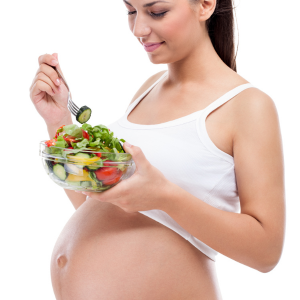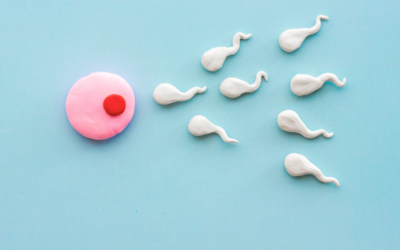You’ve made it to 7 weeks pregnant — congratulations! This stage of early pregnancy is packed with both emotional excitement and physical changes. Whether you’ve been counting down every day since your positive test or just recently found out, week 7 is when things start moving. Even though your baby is still tiny, big developments are happening inside your womb. From a rapidly beating heart to forming facial features, your little one is growing fast.
At 7 weeks pregnant, you might be feeling more symptoms than ever before, think morning sickness, breast tenderness, and sudden food aversions. These signs can be overwhelming, especially if you’re navigating this journey for the first time. But don’t worry, you’re not alone! In this post, we’ll walk you through what’s happening with your baby, how your body is changing, and early pregnancy tips to help you thrive. Whether you’re thrilled, tired, or both, there’s a lot to learn and celebrate during this amazing week.
Let’s explore everything you need to know about being 7 weeks pregnant — from your baby’s development to practical tips that will support you during this transformative stage.
Table of Contents
What Is 7 Weeks Pregnant?
Being 7 weeks pregnant means you’re in the second month of your pregnancy. Even though you may not have a visible baby bump yet, your body is working full-time to support a growing life. At this point, your baby is about the size of a blueberry — approximately 1/3 inch long. That might sound tiny, but those few millimeters are packed with potential.
By 7 weeks pregnant, most of your baby’s vital organs are forming. The brain is growing rapidly, and the heart is beating steadily, around 90 to 110 beats per minute. Tiny limb buds are beginning to sprout into arms and legs, and facial features like the mouth and nostrils are also starting to take shape. Internally, the umbilical cord is working to nourish your baby with essential nutrients.
This stage is crucial in your baby’s development and marks a transition from embryo to a more recognizable human form. It’s also when early pregnancy symptoms tend to peak, as your hormone levels are surging.

7 Weeks Pregnant Symptoms You Might Experience
Here are some common symptoms at 7 weeks pregnant:
- Nausea or morning sickness can occur at any time, not just in the morning.
- Fatigue: Your body is using extra energy to grow the placenta.
- Tender or Swollen Breasts: Hormonal changes affect breast tissue.
- Mood Swings: Due to hormonal fluctuations and emotional adjustments.
- Frequent Urination: Caused by increased blood flow and pressure on your bladder.
- Food Cravings or Aversions: Sudden likes or dislikes are normal.
- Mild Cramping or spotting can occur as the uterus expands, but always consult your doctor if you are concerned.
Each pregnancy is unique, so symptoms may vary from one person to another.
Baby Development at 7 Weeks Pregnant
Your baby is growing rapidly at 7 weeks pregnant. Here’s what’s happening this week:
- Size: About 0.3 inches long — the size of a blueberry.
- Heart: Beats at 90–110 beats per minute and can be seen on ultrasound.
- Limbs: Tiny buds will form arms and legs.
- Brain & Spinal Cord: Develops quickly from the neural tube.
- Eyes, Nose & Mouth: Beginning to form as facial features emerge.
- Umbilical Cord: Now fully functional to deliver nutrients and oxygen.
Although you can’t feel it yet, your baby is beginning movements, and organ systems are starting to take shape.
What to Eat at 7 Weeks Pregnant
Eating well at 7 weeks pregnant supports your baby’s development and eases symptoms like nausea and fatigue. Focus on nutrient-rich, balanced meals:
- Leafy Greens (Spinach, Kale): High in folate and iron.
- Whole Grains (Oats, Brown Rice): Provide energy and fiber.
- Protein Sources (Eggs, Chicken, Beans): Essential for fetal tissue growth.
- Dairy (Yogurt, Milk): Rich in calcium and vitamin D.
- Fruits (Bananas, Berries): Offer antioxidants and vitamins.
- Nuts and Seeds (Almonds, Chia): Healthy fats and protein.
Avoid unpasteurized dairy, raw fish, excessive caffeine, and processed meats. Stay hydrated with plenty of water throughout the day.

Meal Plan for 7 Weeks Pregnant Moms
Here’s a simple daily meal plan tailored for moms at 7 weeks pregnant:
Breakfast:
- Whole grain toast with avocado
- Boiled egg
- Fresh orange juice or water
Mid-Morning Snack:
- A banana or a handful of almonds
Lunch:
- Grilled chicken salad with spinach, tomatoes, and olive oil
- Whole grain pita bread
- Low-fat yogurt
Afternoon Snack:
- Apple slices with peanut butter
Dinner:
- Brown rice with lentils or grilled fish
- Steamed vegetables (broccoli, carrots)
- A small glass of milk or herbal tea
Before Bed Snack (if needed):
- A few crackers or a small bowl of cereal
This plan helps balance your blood sugar and keep nausea at bay.
What to Do If You Suspect You’re Pregnant at 7 Weeks
If you suspect you’re pregnant and think you may be around 7 weeks:
- Take a Home Pregnancy Test: Use your first-morning urine for the most accurate result.
- Schedule a Prenatal Visit: Your doctor may confirm pregnancy through blood tests or an ultrasound.
- Begin Taking Prenatal Vitamins: Folic acid is especially important in the first trimester.
- Avoid Harmful Substances: Quit smoking, alcohol, and any medications not approved by your doctor.
- Start Documenting Your Symptoms: Keeping a journal helps track your health and supports conversations with your provider.
Confirming your pregnancy early ensures you get timely care for a healthy journey ahead.
How to Care at 7 Weeks Pregnant
Self-care at 7 weeks pregnant can make a big difference in how you feel and how your pregnancy progresses:
- Prioritize Rest: Fatigue is real, so nap when you can and get quality nighttime sleep.
- Eat Smaller, Frequent Meals: Helps control nausea and keeps your energy stable.
- Hydrate Constantly: Aim for 8–10 cups of water per day.
- Practice Light Exercise: Walking, stretching, or prenatal yoga improves circulation and mood.
- Connect with Your Partner or Support System: Emotional support is just as important as physical care.
- Avoid Stress: Try deep breathing, meditation, or journaling to stay grounded.
- Attend Prenatal Checkups: Your provider will check your baby’s development and address any concerns.
Simple daily habits can significantly improve your well-being and support your growing baby.

Causes of Pregnancy Symptoms at 7 Weeks
At 7 weeks pregnant, you might be wondering why your body feels so different. The main cause of your symptoms is the increase in pregnancy hormones, particularly human chorionic gonadotropin (hCG), estrogen, and progesterone. These hormones are responsible for supporting your growing baby, but they also bring on a mix of physical and emotional changes.
- Morning Sickness: Triggered by rising hCG levels, nausea can hit anytime, not just in the morning.
- Fatigue: Your body is working overtime to build the placenta, which can leave you feeling completely drained.
- Breast Changes: Hormonal shifts can make your breasts sore, swollen, or more sensitive than usual.
- Frequent Urination: Your kidneys are filtering more blood, and your growing uterus may put pressure on your bladder.
- Mood Swings: Emotional ups and downs are common, thanks to fluctuating hormone levels and the stress of change.
These symptoms are all signs that your body is doing exactly what it should — even if they’re not always pleasant.
Benefits of Being 7 Weeks Pregnant
While the symptoms of 7 weeks pregnant may be intense, there are many positive aspects to celebrate and embrace:
- Stronger Bond with Your Baby: Seeing or hearing that first heartbeat — even via ultrasound — can deepen your emotional connection.
- Early Detection of Health Needs: Prenatal visits during this stage help identify any potential risks early, giving you time to prepare.
- Opportunity for Positive Lifestyle Changes: Many expectant mothers use this time to adopt healthier habits, like improved diet and sleep routines.
- Hormones Help Baby Thrive: Though they may cause discomfort, your pregnancy hormones are ensuring your baby grows and develops properly.
- Formation of Critical Organs: By 7 weeks, your baby’s heart, brain, and spinal cord are developing — a crucial part of forming a healthy baby.
- Starting a New Chapter: Emotionally, being 7 weeks pregnant marks a transition into the world of motherhood. It’s a powerful time for reflection, self-growth, and connection.
Despite the challenges, this stage is full of positive developments that lay the groundwork for a healthy pregnancy journey.
Impact of 7 Weeks of Pregnancy on Daily Life
Being 7 weeks pregnant can influence nearly every part of your day. From physical symptoms to emotional ups and downs, you might find your routine changing — even if you’re still trying to keep things “normal.”
- Work and Productivity: Fatigue and nausea might make concentrating more difficult. It helps to take short breaks, drink water, and manage your energy wisely.
- Food and Appetite: Cravings and aversions are strong at this stage. You may love one food today and hate it tomorrow. Small, frequent meals can ease nausea and maintain energy.
- Sleep Patterns: Some women feel exhausted by early evening. Sleep is crucial now, so don’t hesitate to nap or rest when needed.
- Relationships and Social Life: Mood swings or exhaustion may make you less social. Share your feelings with your partner or close friends — support is essential.
- Exercise and Movement: If you’re feeling up for it, gentle walks or prenatal yoga can help ease discomfort and boost your mood.
Every woman experiences being 7 weeks pregnant a bit differently, but understanding its impact helps you adapt with more confidence and kindness to yourself.
How to Care for Yourself at 7 Weeks Pregnant
Self-care is critical when you’re 7 weeks pregnant. Your body and mind are undergoing major changes, and supporting your health benefits both you and your baby.
Here are practical tips for thriving at 7 weeks pregnant:
- Eat Small, Balanced Meals: Combat nausea by eating light meals throughout the day. Include whole grains, protein, and plenty of water.
- Stay Hydrated: Drink at least 8–10 glasses of water daily. Dehydration can worsen fatigue and dizziness.
- Get Enough Sleep: Aim for 7–9 hours each night. Try to create a bedtime routine that promotes rest.
- Start Prenatal Vitamins: If you haven’t already, now is the time. Folic acid is essential for your baby’s neural tube development.
- Schedule Your First Prenatal Visit: Most providers recommend a first visit between 7 and 10 weeks pregnant. Ultrasounds, blood work, and a due date estimate are often included.
- Listen to Your Body: If you’re tired, rest. If you’re emotional, talk to someone. Honoring your needs is part of pregnancy wellness.
- Avoid Harmful Substances: Say no to alcohol, smoking, and high-caffeine intake. Your baby is especially vulnerable during this phase.
- Gentle Movement Helps: Try stretching or short walks to boost circulation and ease tension.
Simple routines can go a long way in helping you feel your best while supporting a healthy pregnancy.

7 Weeks Pregnant and No Symptoms — Should You Worry?
If you’re 7 weeks pregnant and not experiencing any symptoms, it’s natural to feel a little uneasy. Most pregnancy resources talk about morning sickness, fatigue, breast tenderness, and mood swings — so when those signs are missing, you might wonder: “Is something wrong?”
The good news? Many women experience few or even no symptoms at 7 weeks pregnant, and go on to have perfectly healthy pregnancies. Every pregnancy is unique, and some bodies simply react differently to the hormonal changes happening during early pregnancy. Genetics, hormone sensitivity, and even stress levels can affect how you feel.
However, if you previously had symptoms that suddenly stopped (especially with cramping or spotting), it’s a good idea to contact your doctor. While it could be nothing, it’s always best to check.
When to Call Your Doctor:
- Sudden loss of pregnancy symptoms
- Bleeding or unusual discharge
- Intense abdominal pain
- Feeling faint or dizzy regularly
In most cases, no symptoms at 7 weeks pregnant isn’t a cause for worry — it might just mean your body is adjusting quietly. But trust your instincts and talk to your provider if you’re unsure. Peace of mind is worth it.
Common Myths or Mistakes About Week 7 of Pregnancy
There are plenty of myths and misconceptions about being 7 weeks pregnant. Here are a few to watch out for:
- Myth: You Should Be Glowing by Now
Truth: Many women feel bloated, tired, and nauseous. “Glowing” may come later — or not at all — and that’s okay. - Myth: No Cravings Means Something’s Wrong
Truth: Every pregnancy is different. Some have cravings, others don’t. Both are normal. - Myth: Exercise Is Unsafe
Truth: Light to moderate activity is usually safe — and even encouraged — as long as your provider agrees.
Avoiding these myths helps reduce unnecessary worry and encourages informed, confident choices during your pregnancy.
Frequently Asked Questions (FAQ)
Q1: What is 7 weeks pregnant in simple terms?
A: Being 7 weeks pregnant means you are in the early second month of your pregnancy, and your baby is growing rapidly — about the size of a blueberry.
Q2: What causes symptoms at 7 weeks pregnant?
A: The main causes are pregnancy hormones like hCG, estrogen, and progesterone, which support your baby’s development and trigger changes in your body.
Q3: How can being 7 weeks pregnant improve my life?
A: It marks the beginning of a life-changing journey — emotionally fulfilling, spiritually enriching, and a great time to prioritize your wellness.
Q4: Is being 7 weeks pregnant scientifically significant?
A: Yes! This is a crucial stage for the development of vital organs like the brain, heart, and spinal cord. Prenatal care during this time is medically important.
Q5: How long until I start showing after 7 weeks pregnant?
A: Most women begin to show between 12–16 weeks, though this varies. At 7 weeks, you likely won’t look pregnant yet.
Q6: Can anyone go through being 7 weeks pregnant safely?
A: Most healthy women can experience pregnancy safely with proper care. However, if you have medical concerns, it’s important to consult your doctor.
Q7: What’s the best way to start caring for myself at 7 weeks pregnant?
A: Begin with prenatal vitamins, stay hydrated, rest when needed, and schedule your first prenatal appointment as soon as possible.
Conclusion
Being 7 weeks pregnant is a powerful moment in your pregnancy journey. Though your baby is still tiny, their development is accelerating with each passing day. From a fluttering heartbeat to tiny facial features, your little one is beginning to take shape. At the same time, your body is adapting, sometimes dramatically, to support new life. The fatigue, nausea, and mood swings may not be fun, but they’re signs that things are progressing as they should.
Now is the time to prioritize your well-being — physically, emotionally, and mentally. Use this stage to build healthy habits, connect with your baby, and lean on loved ones for support. Don’t hesitate to ask questions, seek help, or rest when you need it. You’re not alone, and each step you take helps set the foundation for a healthier, happier pregnancy. Keep listening to your body and trusting your instincts.
If you found this guide to be 7 weeks pregnant, please share it with a friend or fellow mom-to-be. Leave a comment below with your experiences — we’d love to hear from you!







